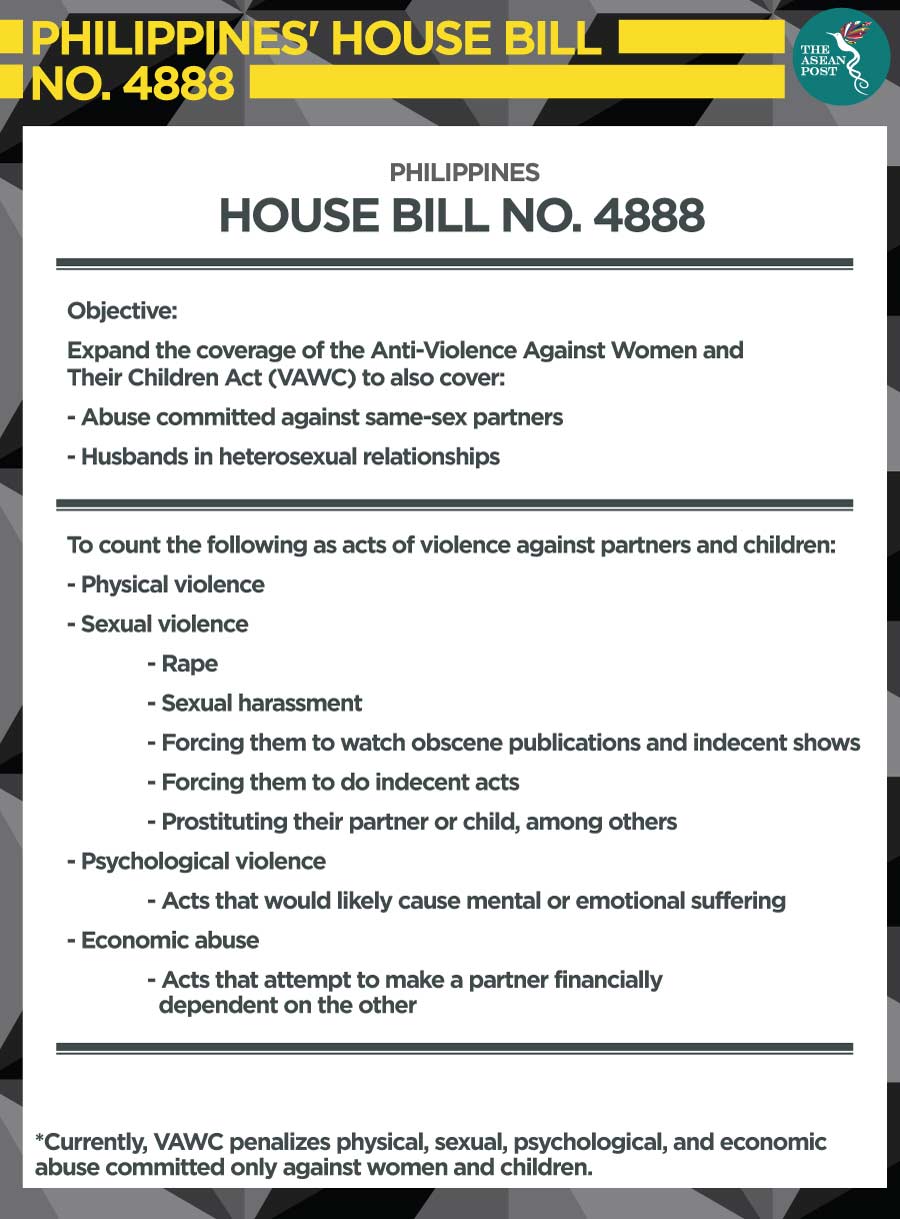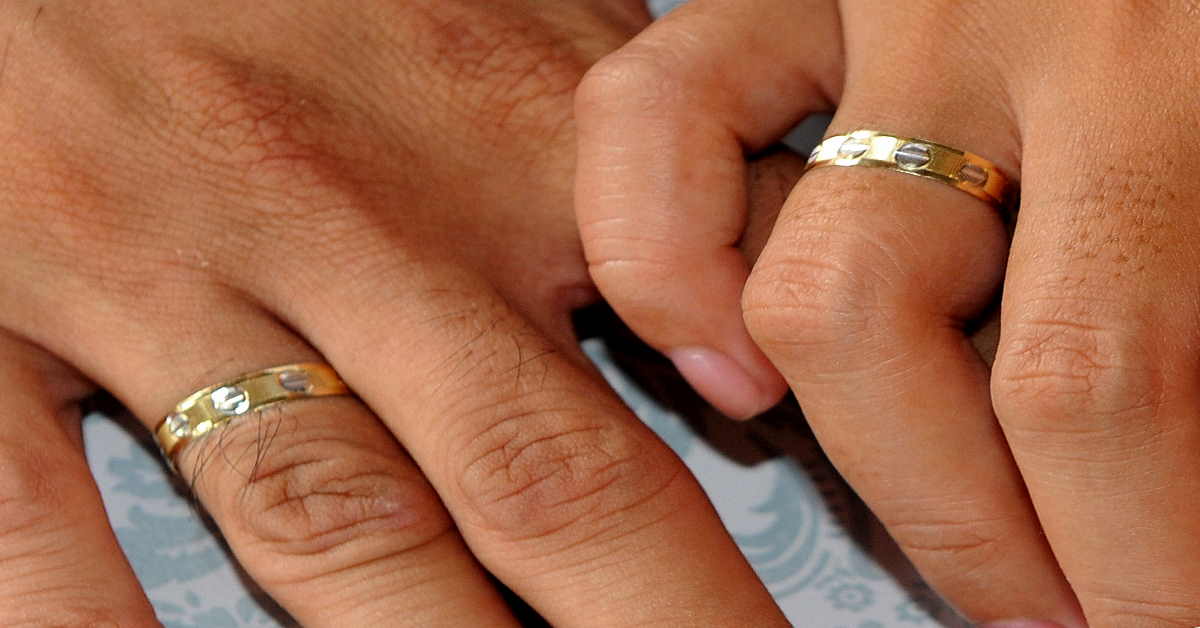There has been a lot of talk about the abuse of women and children whether physically or sexually, especially in the Southeast Asian region. The ASEAN Post has published numerous articles on this topic as well as women empowerment and gender equality. But is there another side to the abused coin?
Earlier this month, a lawmaker in the Philippines filed a bill that would protect spouses and partners in intimate relationships – regardless of gender – against domestic violence. This House Bill (HB) No. 4888, filed by Rizal 2nd District Representative, Fidel Nograles, seeks to expand the coverage of Republic Act (RA) No. 9262 or the Anti-Violence Against Women and Their Children Act (VAWC) of 2004 to also cover abuse committed against same-sex partners and husbands in heterosexual relationships.
Under the bill, the term "partner" covers not only heterosexual relationships, but also "lesbian, gay, bisexual, queer, intersex, cisgender, and transgender partners."
It is completely understandable that in a gay relationship between a man and a man, there is the possibility of abuse. But what of heterosexual relationships? How common is it that men are abused by women? Is there a good reason to put this bill forward?
In a piece written by Manila Doctors Hospital’s Rafael R. Castillo for the Philippine Daily Inquirer in September last year, the medical doctor quotes anti-domestic abuse advocate Emiliano Manahan, also known as Nano, as saying that the incidence of male abuse is on the rise, affecting 12 to 15 out of every 100 couples in the country.
Castillo goes on to write that according to Nano, the problem is that the majority of men, who are victims of domestic abuse, don’t even see themselves as victims. They find it difficult to recognise abuse in their relationship, in contrast to women who have a high “index of awareness” for domestic abuse committed against them or their children.
“Of course, the macho ego also kicks in, preventing the men from admitting abuse. They just keep it to themselves,” Castillo writes.

Toxic masculinity
Often, women’s rights groups will point at toxic masculinity as one of the main contributors towards gender-based violence. In the Philippines, this may be the case for both women as well as men, albeit affecting the different genders in different ways.
In 2012, the media quoted the Federation of Gender and Development (FGAD) as saying that while battered husbands do exist, one of the reasons they kept quiet was because of pride.
“They prefer to keep it confidential. Men have their pride too, and they do not want to come out publicly,” FGAD president Rene Estorpe was quoted as saying.
Castillo mentions that Nano notes in his book the problem of male domestic abuse – which may not necessarily be physical, but can also be emotional, sexual or financial – has been trivialised and made the subject of jokes. The men are referred to as “under the saya (skirt),” “takusa” – short for “takot sa asawa” (afraid of wife), or suffering from “asthma” because they have to ask permission from their wife (“asma” or ask my wife) for everything they want to do, or every time they want to go out with the boys.
Is a law needed to protect husbands?
Going back to the question at hand “do we need the HB No. 4888?” it is important to note that divorce is (at least currently) still not allowed within the country, except for Muslim Filipinos. A divorce law has been in the works for quite some time but as of today, only annulment of marriages are allowed for the majority of Filipinos who aren’t Muslim.
A divorce law would, of course, make it easier for battered husbands to get themselves out of the domestic abuse they’re facing at home. Nevertheless, it would seem that the law protecting women and children must still be amended.
According to the 2012 report mentioned earlier, another reason battered husbands choose to remain mum is because they fear that in the end it will be them who are sued. Ironically, the law that is protecting women and children is the same law that is victimising these battered husbands.
Estorpe cited the cases of two husbands in Agdao Centro, where he is the barangay (village) chairman, as examples of how men – who tried to complain about abuses by their wives – ended up being charged themselves. The two complaining husbands found themselves charged with violating the VAWC law.
“The wives accused them of engaging in illicit affairs,” Estorpe was quoted as saying.
Some women rights activists fear that speaking of abuse against men might steer the narrative from the abuse of women and children. This is especially pertinent considering the fact that the two latter groups have suffered throughout history. Nevertheless, it would seem unfair to the cause to assume that no man suffers abuse under the hands of his wife or partner.
This article was first published on 13 October, 2019.
Related articles:
